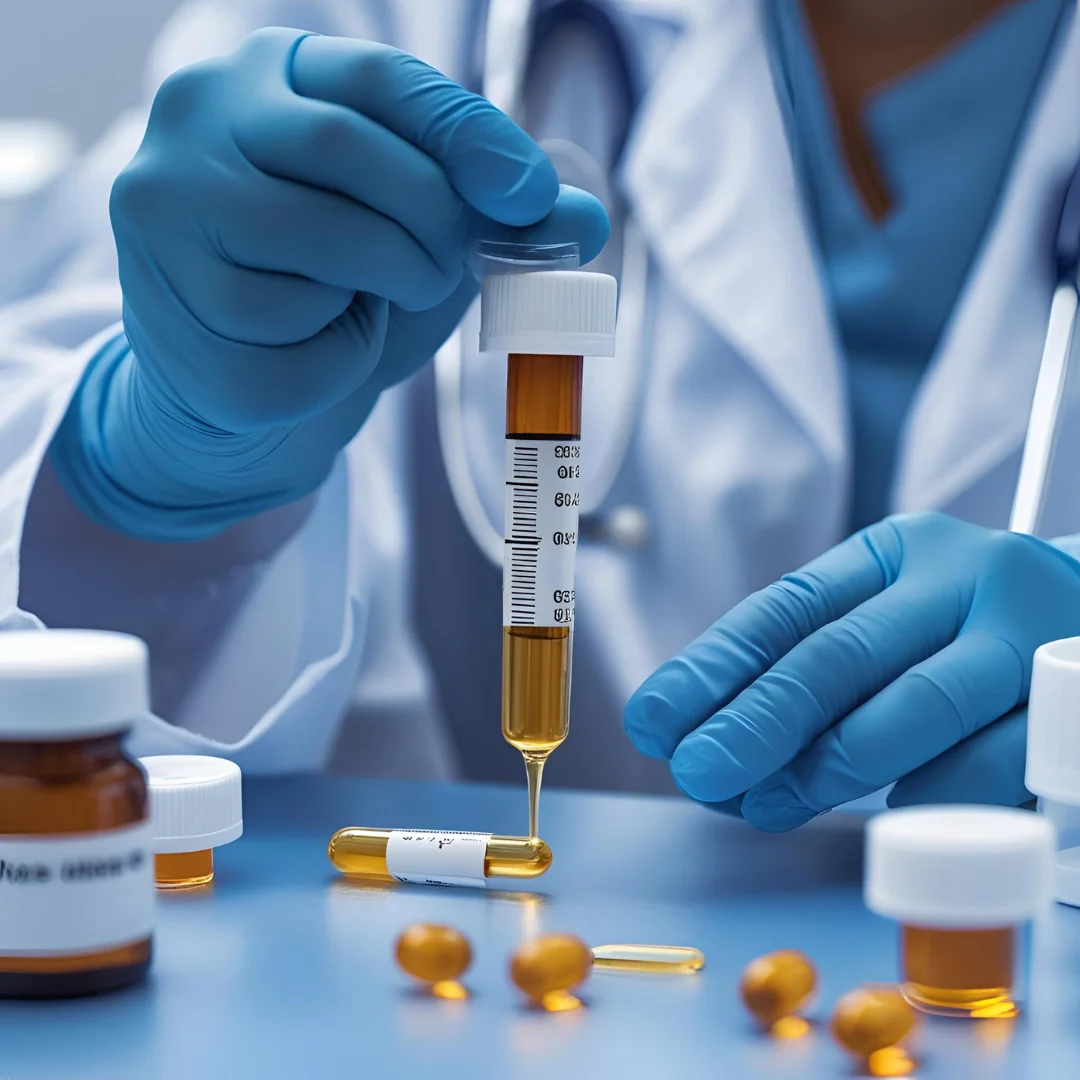
Mesenchymal Stem Cell Clinical Trials | Phases, Conditions & FDA Status
Mesenchymal Stem Cell (MSC) clinical trials are at the forefront of regenerative medicine research, aiming to validate the safety and effectiveness of MSC-based therapies for a wide range of health conditions. Known for their ability to reduce inflammation, repair tissue, and modulate immune responses, MSCs are being tested in clinical settings worldwide for diseases like osteoarthritis, autoimmune disorders, lung injury, and more. These trials are essential for translating promising lab results into real-world treatments and bringing MSC therapy closer to clinical approval.
Why Are MSCs Used in Clinical Trials?
Mesenchymal Stem Cells (MSCs) are widely studied in clinical trials due to their unique biological properties and therapeutic versatility. As multipotent stem cells, MSCs can differentiate into various tissue types, including bone (osteoblasts), cartilage (chondrocytes), and fat (adipocytes)—making them ideal candidates for regenerative medicine.
What sets MSCs apart is not just their regenerative capacity, but also their powerful immunomodulatory effects. They can suppress excessive immune responses, reduce inflammation, and promote healing without triggering strong immune rejection—making them suitable for both autologous and allogeneic MSC therapy.
These qualities have positioned MSCs at the center of numerous cell-based and tissue-based therapies. From orthopedic disorders and autoimmune diseases to organ damage and skin regeneration, MSCs are being investigated across a wide range of clinical indications. Their ability to work in synergy with the body’s healing processes has sparked global interest in developing safe, standardized, and scalable MSC-based treatments.
Current Landscape of MSC Clinical Trials
The number of human MSC trials has grown significantly in the past decade, with thousands of ongoing and completed studies worldwide. According to databases like ClinicalTrials.gov, the EU Clinical Trials Register, and the WHO International Clinical Trials Registry Platform (ICTRP), MSCs are being evaluated across multiple continents—most notably in the United States, Europe, and China.
These regions are leading the way in global clinical trials due to strong research infrastructure, supportive regulatory frameworks, and growing investment in regenerative medicine. Institutions such as the NIH and biotech firms are heavily involved in advancing MSC-based interventions through early and late-phase trials.
The most commonly studied conditions include:
The diversity of these clinical applications reflects MSCs’ potential not just as a regenerative tool, but as a cornerstone of immune modulation and inflammation control in complex, chronic diseases.
Common Conditions Being Studied
Mesenchymal Stem Cells (MSCs) are being investigated across a wide spectrum of clinical conditions due to their regenerative, anti-inflammatory, and immunomodulatory capabilities. Below are some of the leading therapeutic areas under study in ongoing MSC clinical trials.
Autoimmune and Inflammatory Diseases
MSCs have shown strong promise in treating autoimmune disorders such as lupus, rheumatoid arthritis, and Crohn’s disease. Their ability to modulate immune system activity without suppressing it entirely makes them valuable in balancing immune responses. Clinical trials are focusing on how MSC therapy can reduce chronic inflammation, promote healing of damaged tissues, and improve long-term outcomes in these systemic conditions.
Orthopedic and Cartilage Repair
MSCs are widely tested in patients with osteoarthritis, cartilage injuries, and other degenerative joint diseases. These trials aim to leverage MSCs’ ability to regenerate cartilage, reduce joint inflammation, and delay the need for surgical interventions. Applications also include meniscal tears, tendon injuries, and post-operative joint healing.
Spinal Disorders
Conditions such as stroke, multiple sclerosis (MS), and spinal cord injuries are key targets for MSC-based neuroregenerative research. Clinical studies are evaluating how MSCs can support neuron survival, stimulate axonal regeneration, and reduce neuroinflammation in both acute injuries and chronic neurodegenerative diseases.
Respiratory and Viral Illnesses
MSCs have been tested in respiratory conditions like acute respiratory distress syndrome (ARDS) and COVID-19-related lung injury. Their anti-inflammatory and tissue-repair properties are being studied to treat severe inflammation, reduce lung scarring, and improve oxygen exchange. Several clinical trials have shown encouraging early results in reducing ICU stays and improving respiratory function in critical patients.
Trial Phases and Design
Clinical trials for mesenchymal stem cell (MSC) therapies follow rigorous scientific frameworks to ensure safety, efficacy, and regulatory compliance. Each phase of testing serves a specific purpose in the journey from lab discovery to clinical application.
Phase I: Safety and Tolerability
In Phase I trials, MSCs are administered to a small group of participants—usually healthy volunteers or patients with no other treatment options. The primary focus is on safety, identifying any side effects, and determining initial dosing levels. These studies often explore different routes of delivery, such as intravenous (IV) or localized injections, depending on the condition being treated.


Phase II: Efficacy and Dose Optimization
Once safety is confirmed, Phase II trials involve a larger group of patients and aim to evaluate how well MSC therapy works for a specific condition. These studies further examine optimal stem cell dosages, treatment frequency, and short-term clinical outcomes. At this stage, the trials are often randomized and placebo-controlled to compare results more accurately.
Phase III: Confirmatory Testing
Phase III trials are large-scale studies involving hundreds or thousands of patients. They are typically double-blind, meaning neither the patients nor the researchers know who receives the real treatment or the placebo. These trials aim to confirm efficacy across diverse populations, monitor long-term safety, and compare MSCs against existing therapies. Data from Phase III trials is crucial for seeking regulatory approval from agencies like the FDA and EMA.

To maintain the highest quality standards, MSCs used in trials must be produced in GMP-certified labs, ensuring sterility, consistency, and cellular viability. Regulators also evaluate the cell characterization, potency, and manufacturing protocols before allowing human testing to proceed.
Regulatory and Ethical Considerations
As interest in mesenchymal stem cell (MSC) therapies continues to grow, regulatory oversight and ethical sourcing play a critical role in ensuring safe and responsible clinical use.
Regulatory Approval by the FDA and EMA
In the U.S., the FDA (Food and Drug Administration) regulates MSCs as biological products, requiring extensive clinical evidence before approving them for therapeutic use. Similarly, the European Medicines Agency (EMA) classifies MSC-based therapies as Advanced Therapy Medicinal Products (ATMPs), subject to strict testing and monitoring standards.
Before MSC products can reach patients, they must demonstrate safety, efficacy, and quality through well-structured clinical trials—often supported by Phase III data. Both agencies require trial sponsors to submit detailed manufacturing, preclinical, and clinical documentation before granting regulatory approval.
Importance of GMP-Certified MSC Manufacturing
All MSCs used in clinical trials must be processed in GMP (Good Manufacturing Practice)-compliant facilities. These labs follow standardized protocols to ensure the stem cells are sterile, consistent in quality, and properly characterized for therapeutic use. This includes rigorous testing for cell surface markers, viability, potency, and the absence of contaminants.
Working with GMP-certified MSCs is not only a legal requirement in many countries but also a scientific safeguard to protect patient health and ensure reproducibility of trial results.
Autologous vs Allogeneic Use: Ethical Considerations
Ethical considerations vary depending on whether MSCs are autologous (from the patient’s own body) or allogeneic (from a donor). Autologous MSCs avoid immune rejection but involve invasive harvesting and may vary in quality based on patient age or health.
Allogeneic MSCs, often sourced from the umbilical cord, placenta, or Wharton’s Jelly, allow for mass production and are easier to use in “off-the-shelf” therapies—but require strict donor screening and ethical sourcing.
Organizations like the ISCT (International Society for Cellular Therapy) provide globally accepted standards for ethical MSC identification, handling, and application in both research and therapy.
How to Find and Track MSC Clinical Trials?
If you’re a researcher, clinician, or potential participant interested in mesenchymal stem cell (MSC) trials, several global databases provide up-to-date information on current and upcoming studies. These platforms offer free access to trial listings across various countries, conditions, and phases.
Trusted Databases to Use
Search by Key Filters
You can search clinical trial databases using filters such as:
This helps narrow results to match your interest, whether you’re looking for active trials in your region or specific treatment types.
What to Look For in a Trial Listing
When exploring trial listings, pay attention to:
These factors can help determine whether a trial is relevant and trustworthy for participation or observation.